Atlas Fallen is a game that offers a hack-and-slash style of combat alongside semi-open world exploration. Its massive deserts and overarching story provide an aesthetic not seen by most titles today, although some of its features will almost certainly draw comparisons regardless. First impressions by most players might leave them apprehensive about a lackluster story that can hardly be ignored and characters that toe the line from forgettable to annoying. But unlike other modern releases with similar trends, Atlas Fallen manages to carve its own identity by focusing its efforts on where it matters most.
The Sights and Sounds of Sand
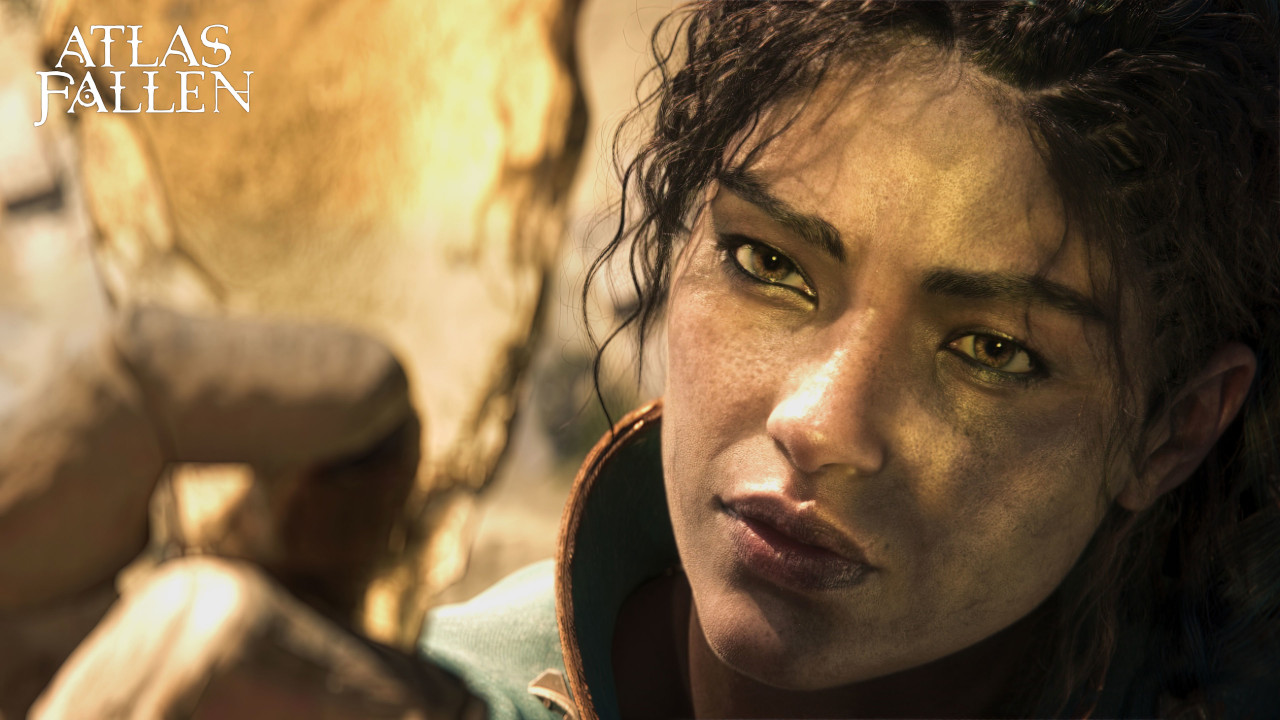
Atlas Fallen has decent enough sound design. Few times does it feel like the game is missing sound effects. Each hit dealt to enemies is loud and clear, making every instance of successful damage feel satisfying. The game’s music unfortunately gets drowned out by the noises and general ambience, making it hard to recall any tracks playing during the more threatening encounters. There’s also a notable lack of sound for getting hit by enemy attacks, sometimes requiring players to keep a constant eye on their health bar to realize just how close to death they are.
Visually, Atlas Fallen is okay. It goes for a realistic look shared by many Triple-A releases, but the game is marred by a few hiccups on PC. Lower-end machines will be struggling to play at all without turning settings down to medium or low, even when selecting the performance-friendly DirectX 11 option. The game looks good on higher settings, but with the constant flood of tan-and-orange visuals, players will have seen most of the game’s greatest looks within the first hour or two.
Coarse and Rough, but Not Irritating
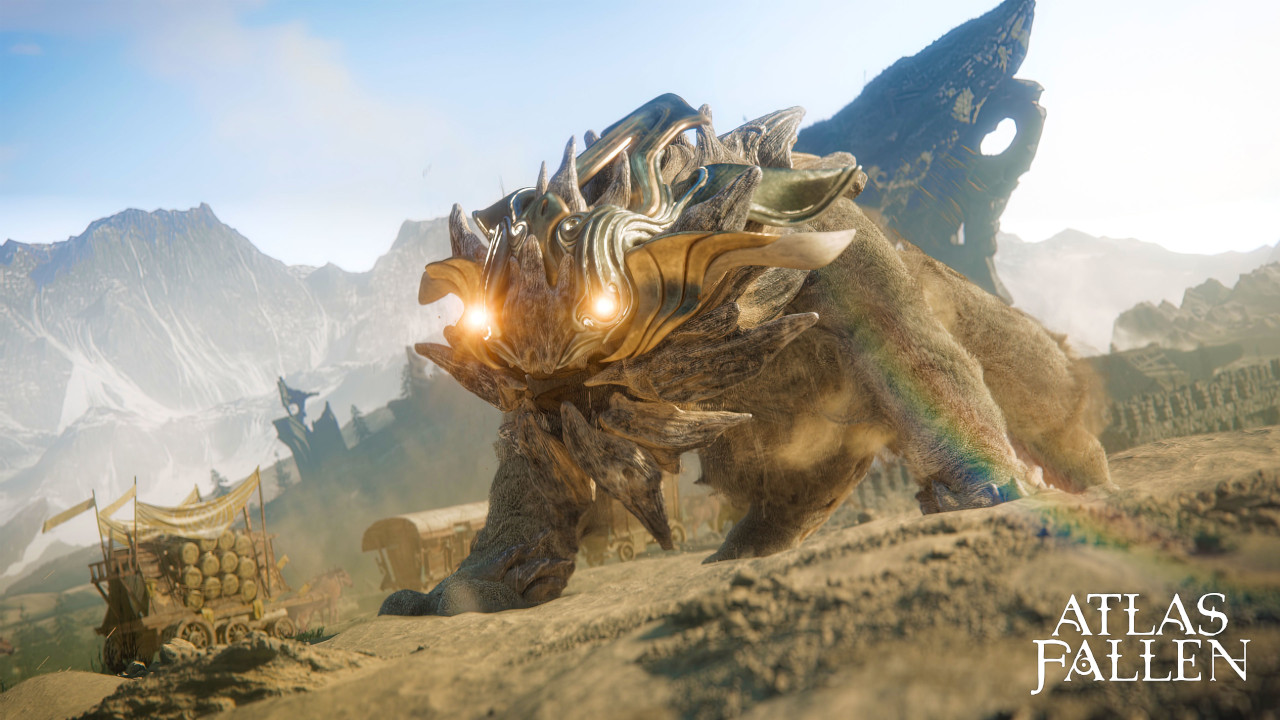
The sand-filled world of Atlas Fallen doesn’t make for much variety in aesthetics outside of a few notable locations, but it’s still noticeably hand-crafted. Patches of green and ruins within caves help shake up the monotony of the game’s endless deserts. There are four major areas to explore, with two of them being fairly large and the other two being absolutely massive. The rewards for discovering secrets can vary between fantastically-useful items and little more than pocket change, but making the effort to go off the beaten path is usually worthwhile.
The main journey of Atlas Fallen has the player discovering a mysterious gauntlet housing a voice that grants them godlike powers. They use this gauntlet to free themselves and the people from an evil deity known as Thelos. Most of the characters and story beats are fairly forgettable, offering very little in the way of attachment. But unlike similar titles released this year, there’s thankfully a great lack of “quirky” dialogue or overly-complicated lore. Atlas Fallen’s story doesn’t try too hard to be funny or thought-provoking, and it doesn’t need to. What’s there is serviceable, meaning any pitfalls within the story and characters are unlikely to turn players away.
The biggest pitfall of the story is how it interacts with the gameplay. While there are some great ideas scattered throughout, such as the Watcher’s constant presence and the existence of Thelos worshipers, the game doesn’t draw out their full potential. It’s fun to engage with opposing NPCs that despise, fear, and respect the player character, but it’s a shame that the only true foes in battle are the mindless sand-covered wraiths. Atlas Fallen is a fairly short game overall, lasting around 8-10 hours story-wise, and this unimpressive length unfortunately hinders how much it can experiment with more fun and unique gameplay elements.
Which is especially a shame, because the gameplay itself is absolutely incredible.
Dangers of the Dunes
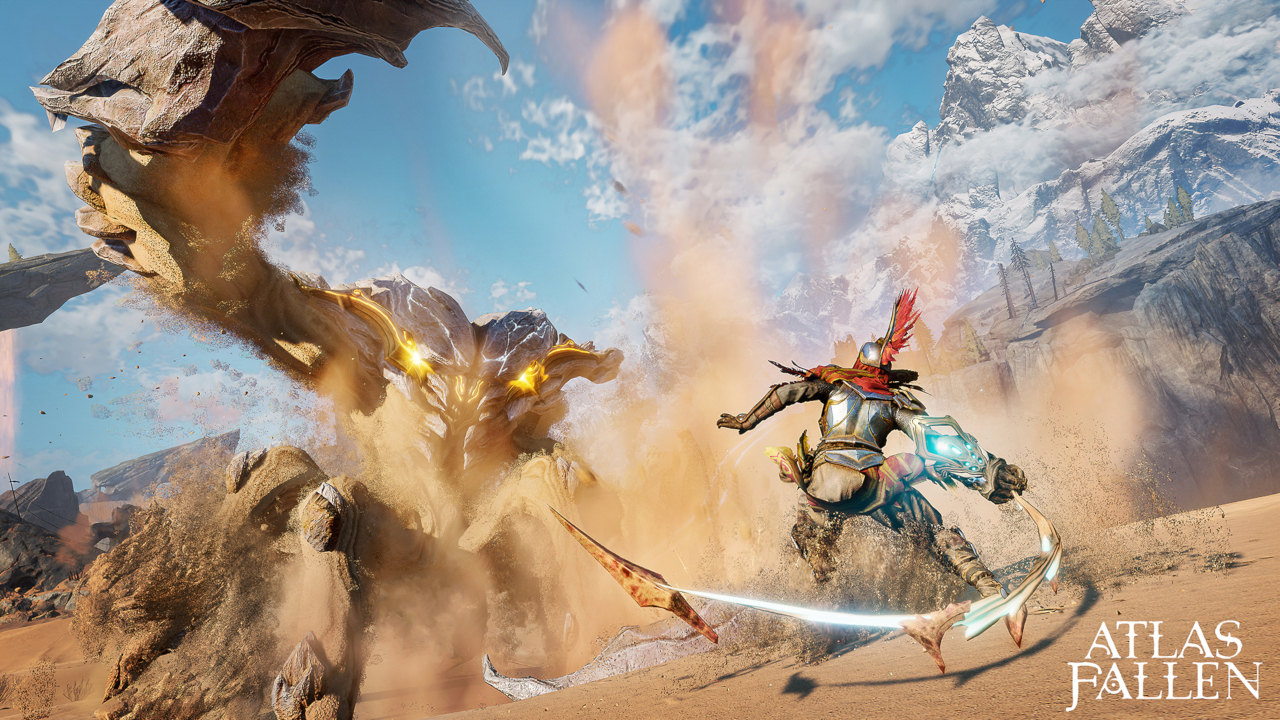
For all of its pitfalls, from story to sound to visuals to features, Atlas Fallen excels in its base gameplay. The game follows such a simple system with little more than three main weapons, yet it manages to make fights with those weapons an utter joy. This is partially thanks to the unique “momentum” feature that progressively makes attacks stronger as the player fights more effectively. Few other action-focused titles manage to include a feature like this, and even fewer manage to do it in such an easy-to-access way. It’s a constant reward for those willing to improve their skills, which they’ll need to do if they want to survive.
One of the biggest reasons why Atlas Fallen’s combat is so fun is because of how much control players have. Movement is perhaps the pride and joy of this game, both in combat and in basic exploration. Replacing a usual sprint with a slide on sand was perhaps the smartest move the developers made, making it fun to simply go from one place to another even with the existence of fast travel. Aerial movement is also top-notch, allowing players to dash through the sky and correct their movements for unmatched precision. This extends heavily into battles with the game’s wraiths, making it unlikely that players will spend more than a few seconds with their feet on the ground.
Enemies in Atlas Fallen are just as impressive as the combat they’re designed around. Even minor enemies have multiple attacks, requiring attention and care as players take on the larger boss-like wraiths later in the game. These foes feel like true threats, with some even dishing out combos of their own. Beating most of them requires great knowledge of the game’s parry system, which is forgiving without being a complete win-button. There are plenty of other tools players can use to surpass these enemies like the numerous Essence Stones at their disposal, allowing them to even the odds when in encounters with groups.
In spite of its fantastic gameplay, Atlas Fallen unfortunately suffers from issues with how it balances its encounters. The game’s difficulty selection seems to do little more than increase health or damage taken, and practically every fight — from normal encounters to boss battles — involves multiple enemies. This can make later foes feel like complete damage sponges, especially when certain bosses are protected by a shield kept up by other enemies. Each foe makes for a perfectly fun fight on its own, so the complete lack of solo battles is just an utter disappointment.
Final Thoughts
Atlas Fallen is not a game free of flaws. But it also acknowledges the fact that a game should be played. Above all else, a game should be fun to pick up and enjoy firsthand, and that happens to be the one area where Atlas Fallen truly excels. That alone makes it far more worthwhile than many of the other releases it competes with. Should the developers continue to support this title, either through regular updates or a sequel that shatters its old flaws, Atlas Fallen will only ever be a net positive on the industry. It might lack a memorable story or the highest-quality visuals, but it’s a prime example of a game that developers should be making today.


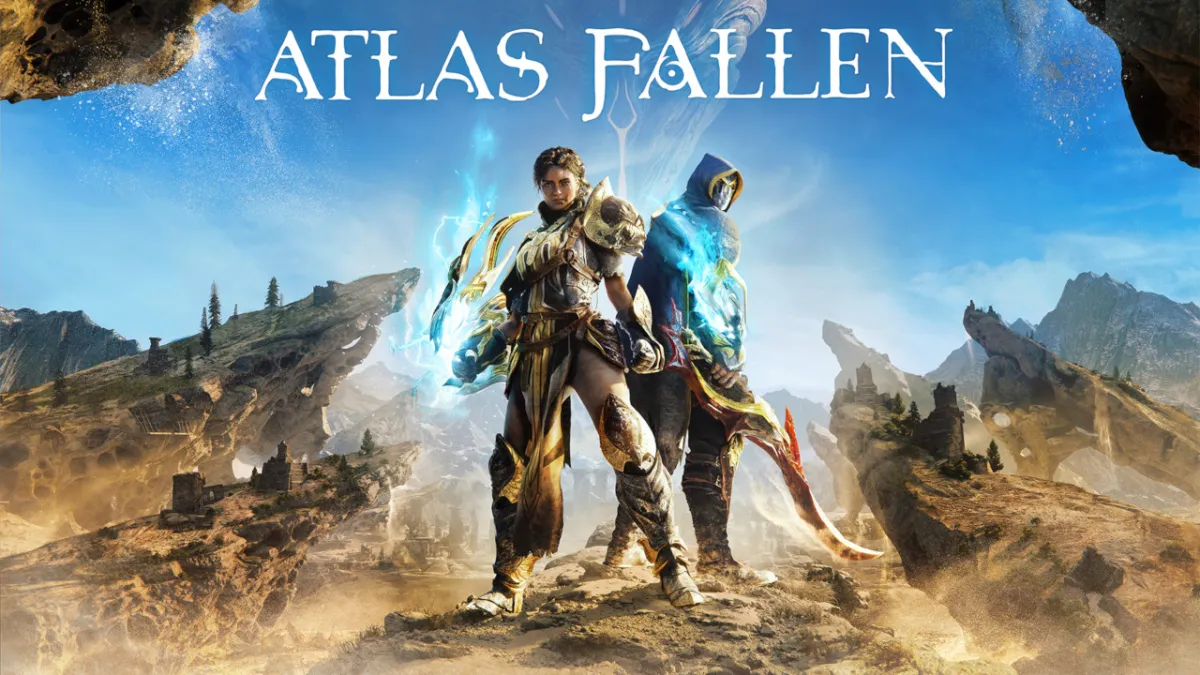
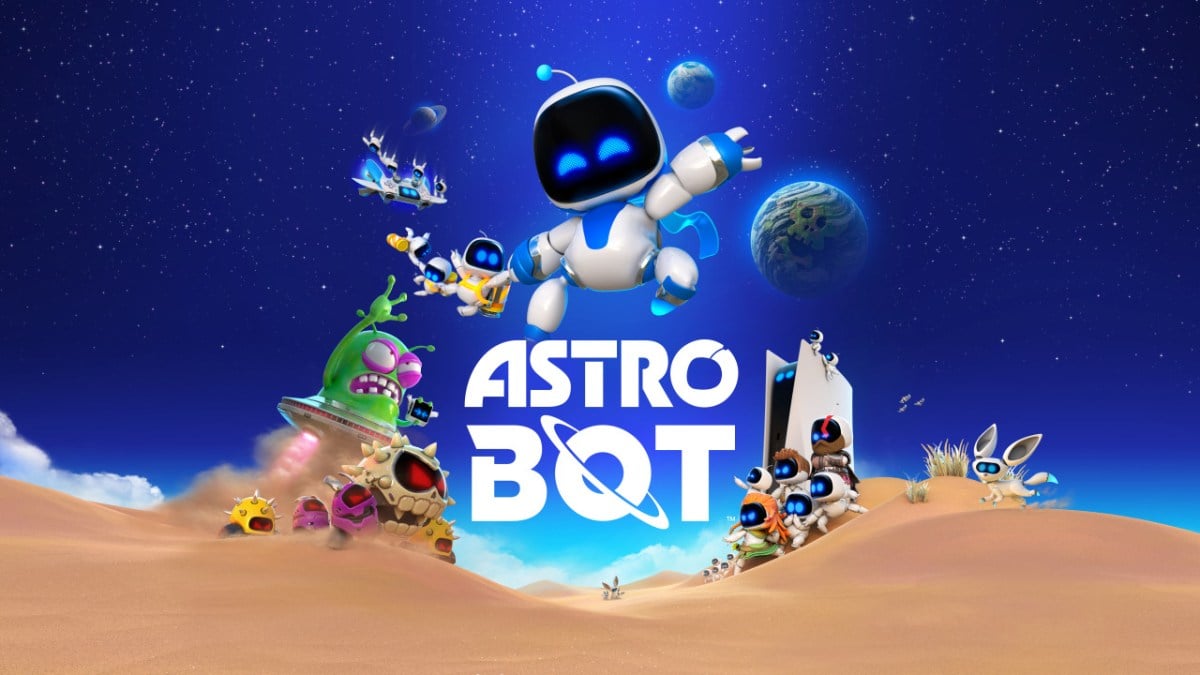
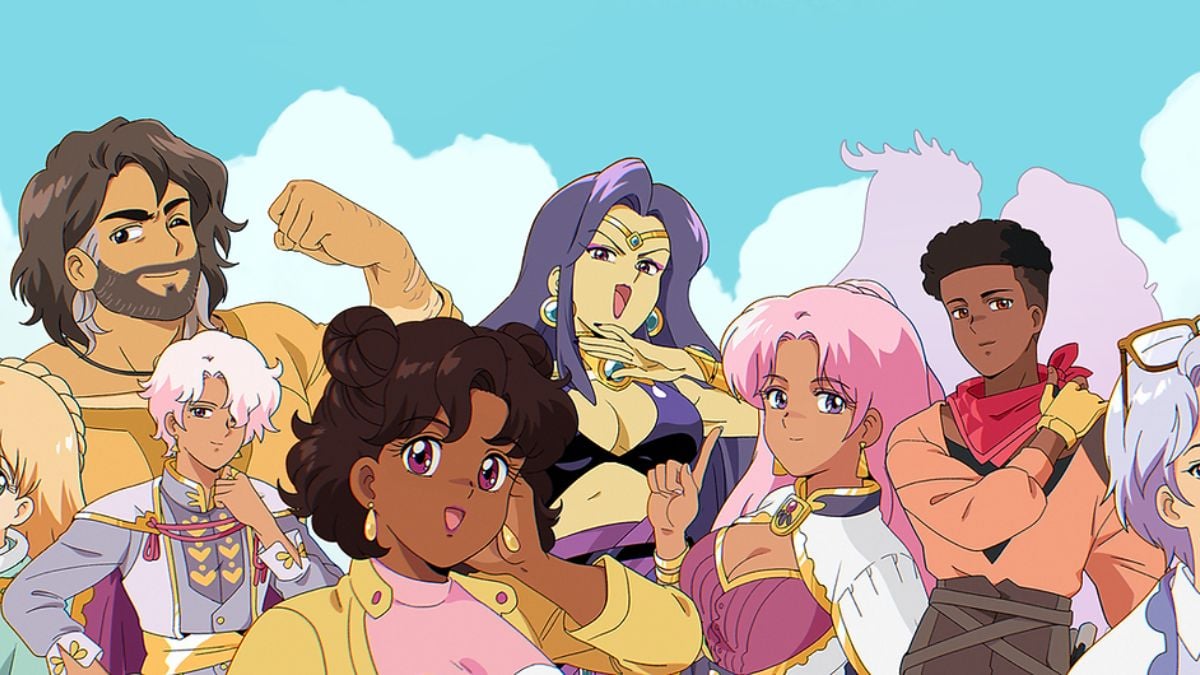
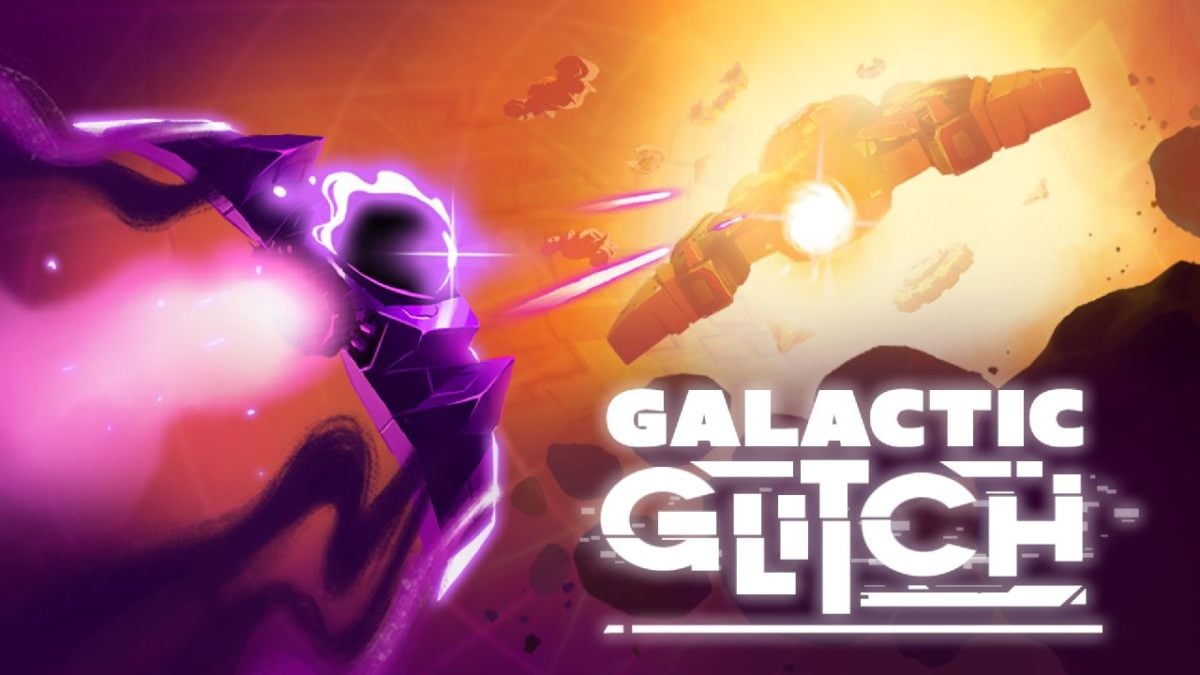
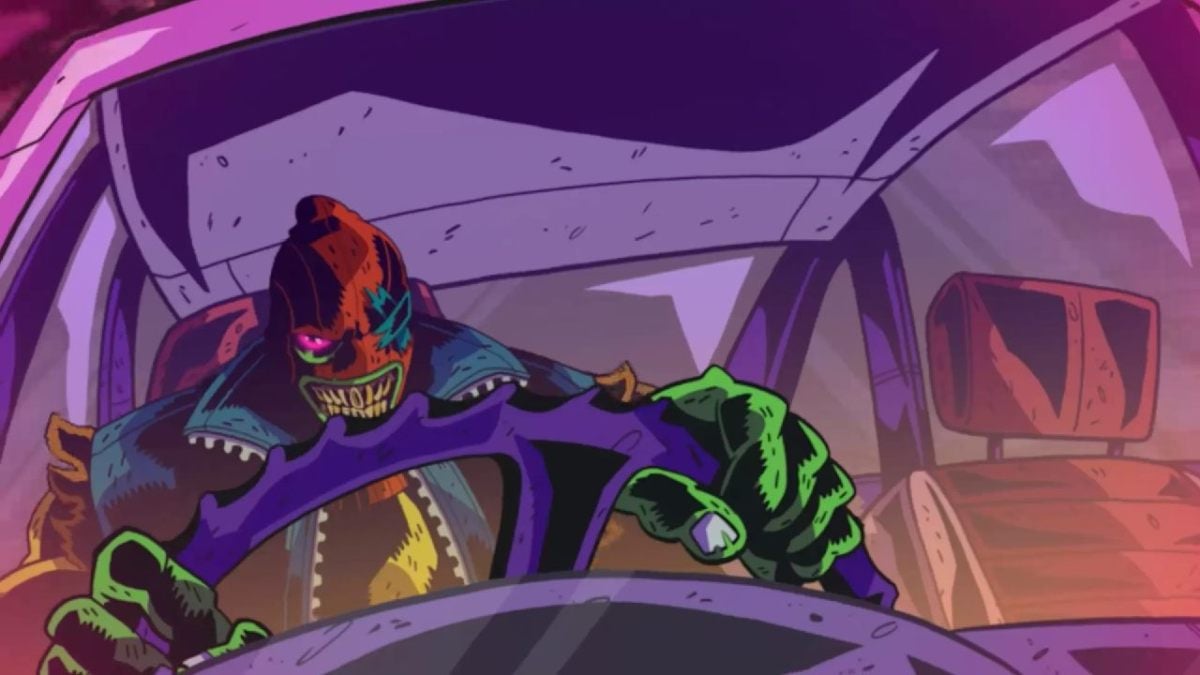
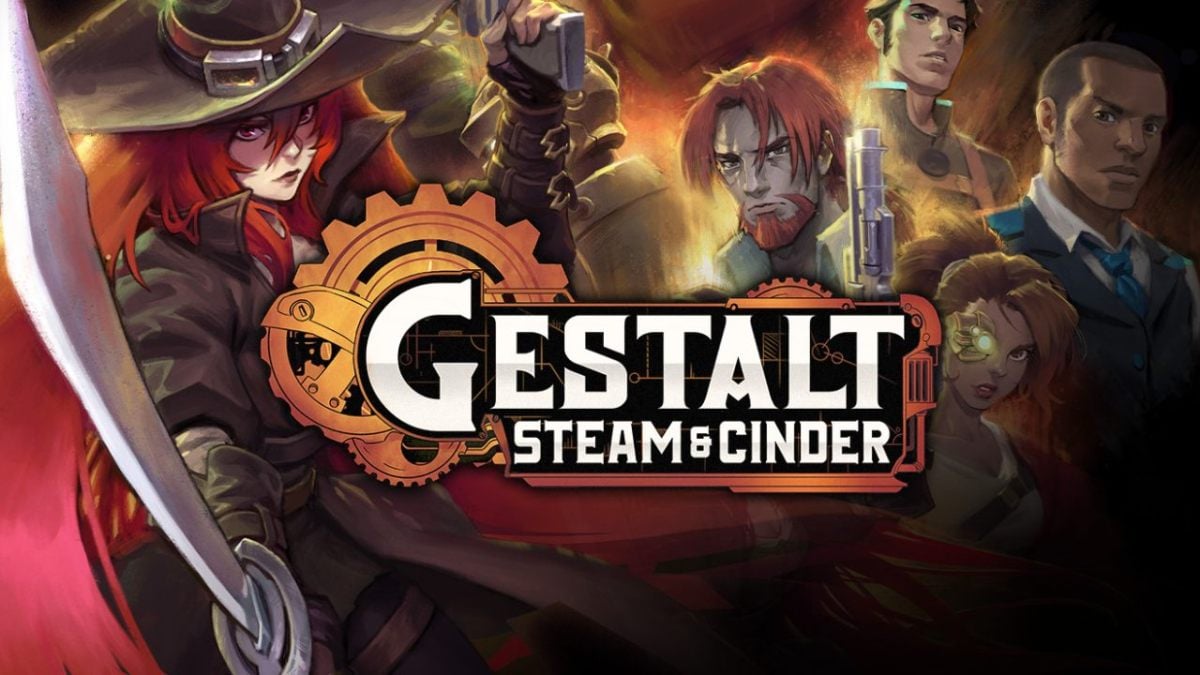
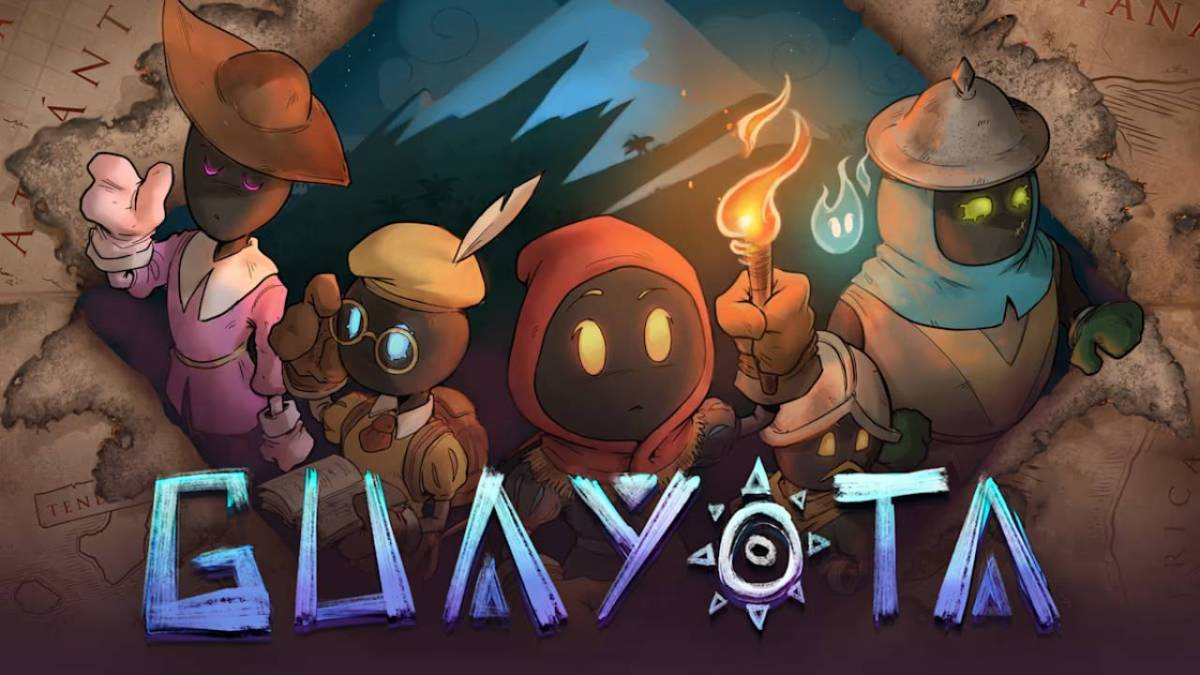
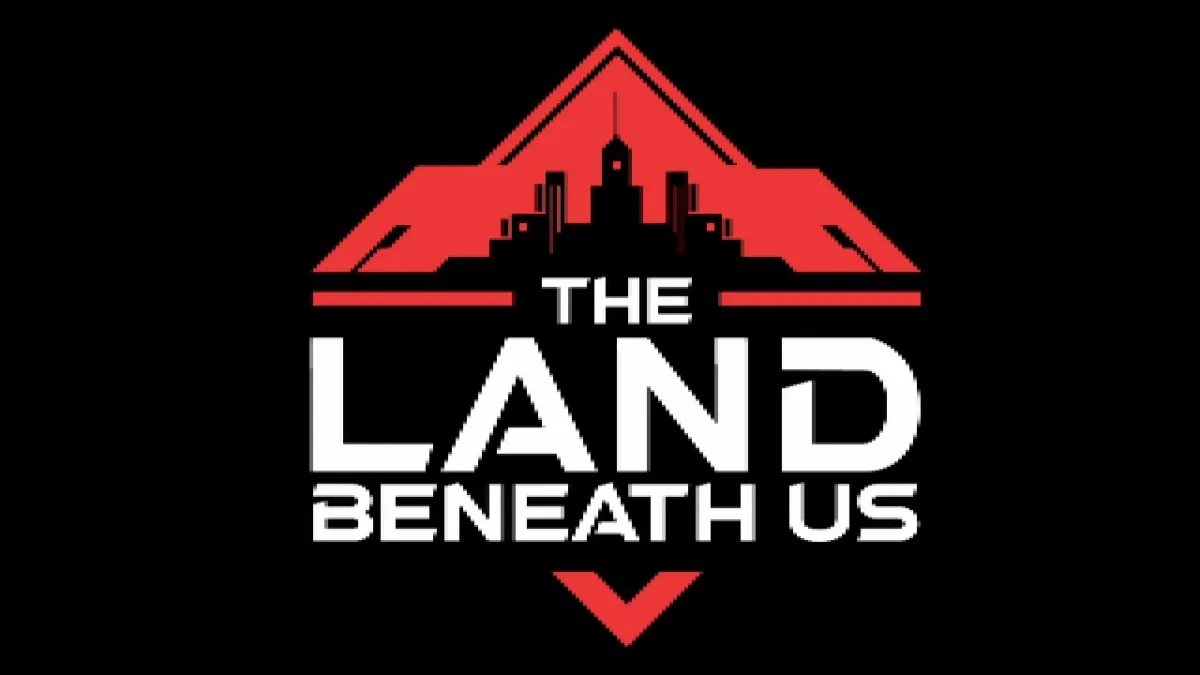
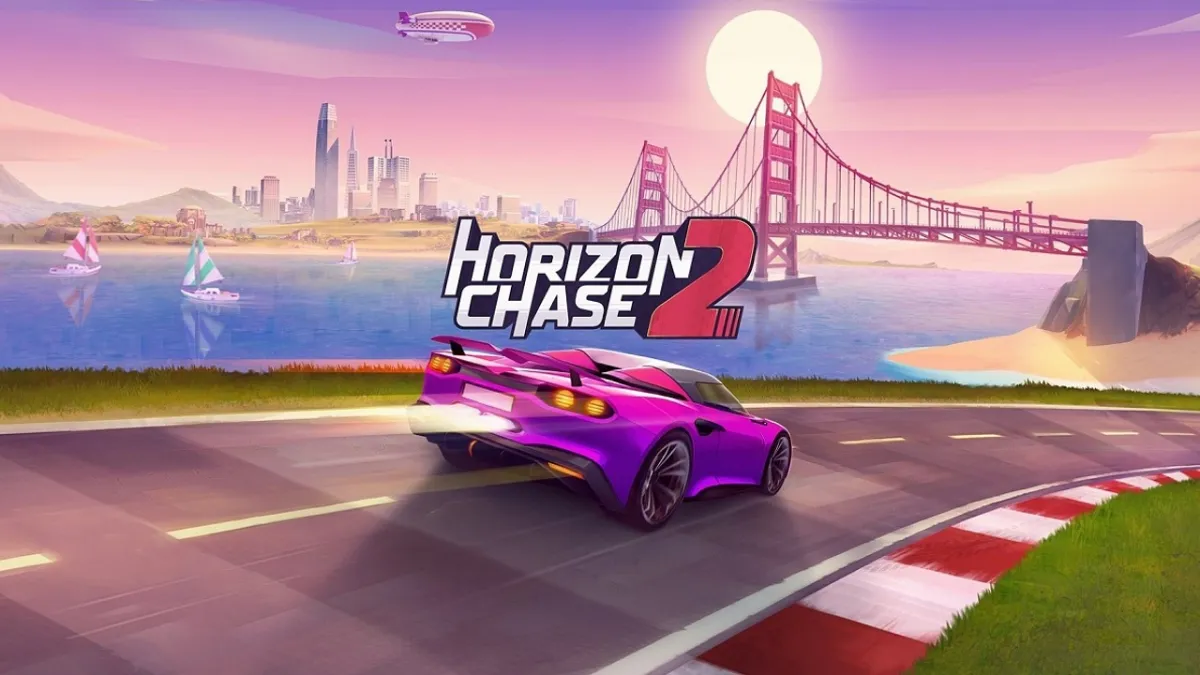

Published: Aug 9, 2023 01:00 pm